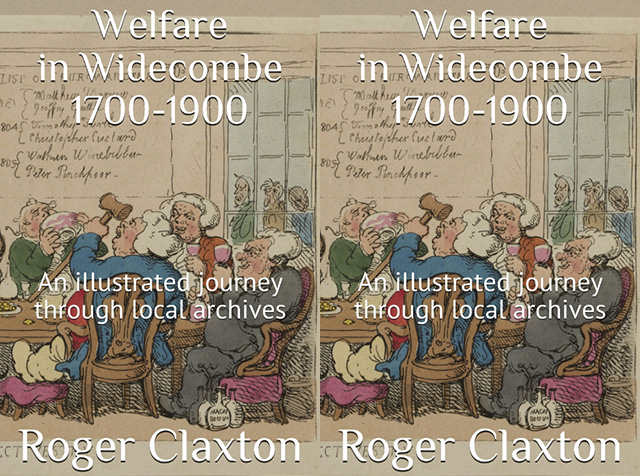Welfare in Widecombe 1700-1900: An illustrated journey through local archives
Book review

Welfare in Widecombe 1700-1900: An illustrated journey through local archives, Roger Claxton, Widecombe History Group, 2019, 194p, £17-00 [plus postage and packing], ISBN 978-1-9162849-0-6. More details from www.widecombe-in-the-moor.com/welfare/
Meticulous research has enabled Roger Claxton to produce his Welfare in Widecombe 1700-1900, with its longer and highly significant title of an illustrated journey through local archives.
The detailed consideration of the experiences of the people of Widecombe as they dispensed and received various forms of welfare is extraordinarily thorough. At one level this work, this recipient of a Devon History Society prize, will only be of direct interest to people who have close interest in Widecombe or at least that part of Devon.
The reality is that this important work has a significance well beyond Widecombe at various levels. It is a model for others to apply when they study what the welfare experiences may have been within rural communities. To a degree we are often drawn to the urban experiences and this book adjusts that balance and enables us to see how life was experienced, and endured, in more independent settlements.
The materials that are shared and illustrated very vividly also provide a standard for others to try to match, both in terms of the range but also the quality of what has been identified.
At a particular level, three examples have especially struck me: the experience of dealing with removal orders; the apportionment of money found on dead persons found on the moor towards their funeral costs; and the support given to unmarried mothers and their illegitimate children had a surprising degree of sympathy invested in its application. The punishment by the JPs of some farmers for killing a hare and the effective punishment by the overseers of the person who had denounced them by an amount matching the fine they had received reveals an attitude of mind almost amounting to a form of restorative justice.
The quality of research is matched by the quality of illustrations, in terms of reproduction of documents, transcripts and highly appropriate works by Thomas Rowlandson. This is a model for others to follow.

